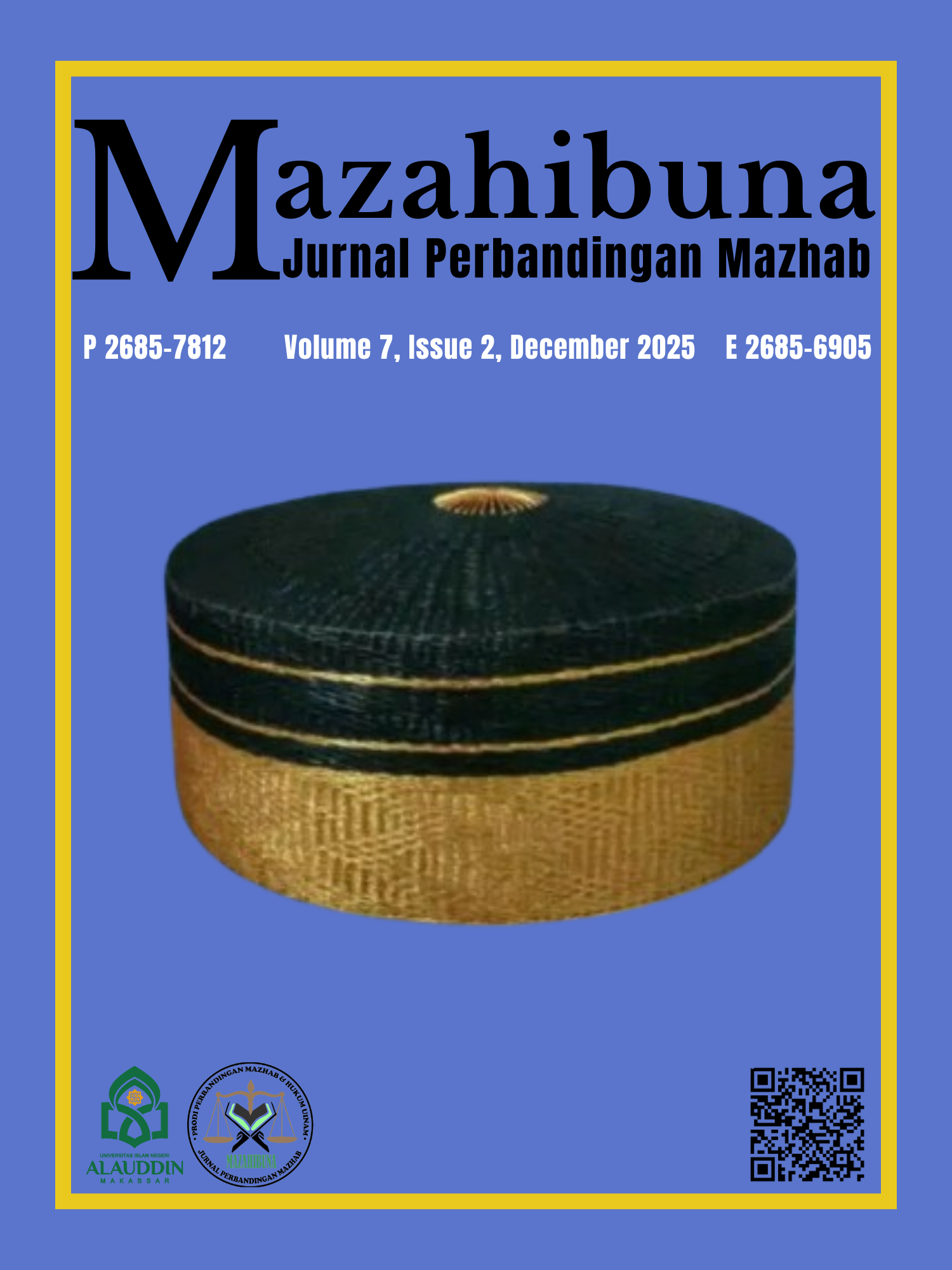Maqāṣid al-Sharīʿah and the Ethics of Surrogacy: A Critical Appraisal of Lineage and Legal Certainty in Contemporary Islamic Law
DOI:
https://doi.org/10.24252/mazahibuna.vi.56753Abstract
The growing application of Assisted Reproductive Technologies (ARTs) in Muslim contexts suggests the need to examine the legal and ethical implications of surrogacy in the framework of Maqāṣid al-Sharīʿah (the objectives of Islamic law). Therefore, this study aims to assess the compatibility of surrogacy, both traditional and gestational forms, with the core objectives of Sharīʿah, particularly the preservation of religion (ḥifẓ al-dīn), life (ḥifẓ an-nafs), lineage (ḥifẓ al-nasl), and wealth (ḥifẓ al-māl). The methodology was based on a comprehensive textual analysis of Islamic legal sources, including the Qur’an, Sunnah, classical juristic writings, contemporary fatwas, and modern bioethical debates. By examining the materials, the analysis explored how surrogacy introduced legal and moral disruptions, particularly concerning lineage (nasab), maternal identity, inheritance, and the sanctity of the marital relationship. The results showed that surrogacy practices contradicted essential objectives of Islamic law by generating uncertainty in family structures, severing the connection between biological and legal motherhood, as well as undermining principles critical to Islamic family jurisprudence. These concerns were affirmed by the near-consensus among major Islamic juristic bodies, which categorized surrogacy as impermissible (ḥarām). The originality of this study is grounded in the systematic application of Maqāṣid al-Sharīʿah to a contemporary bioethical issue, showing the depth and coherence of Islamic legal reasoning in regulating modern reproductive technologies. In conclusion, enacting clear legislative prohibitions is recommended in Muslim-majority countries as well as continuous ijtihād to evaluate future biomedical developments in maqāṣid framework.
References
Academy, I. F. (2000). Resolutions and Recommendations of the Council of the Islamic Fiqh Academy 1985-2000. Islamic Research and Training Institute. https://iifa-aifi.org/wp-content/uploads/2021/12/Resolutions-Recommendations-of-the-IIFA-Official-Edition-Oct-2021.pdf
Downloads
Published
How to Cite
Issue
Section
License
Copyright (c) 2025 Folorunsho Ahmad Hussein, Abdulraheem Taofeeq Abolaji, Abdulsalam Sodiq Gbolahan

This work is licensed under a Creative Commons Attribution 4.0 International License.

This work is licensed under a Creative Commons Attribution 4.0 International License.
Authors who publish with Mazahibuna: Jurnal Perbandingan Mazhab agree to the following terms:
- Authors retain copyright and grant the Mazahibuna: Jurnal Perbandingan Mazhab right of first publication with the work simultaneously licensed under Creative Commons Attribution License (CC BY 4.0) that allows others to share the work with an acknowledgment of the work's authorship and initial publication in this journal.
- Authors can enter into separate, additional contractual arrangements for the non-exclusive distribution of the published version of the work (e.g., post it to an institutional repository or edit it in a book), with an acknowledgment of its initial publication in this journal.
- Authors are permitted and encouraged to post their work online (e.g., in institutional repositories or on their website) before and during the submission process, as it can lead to productive exchanges, as well as earlier and greater citation of published work.










